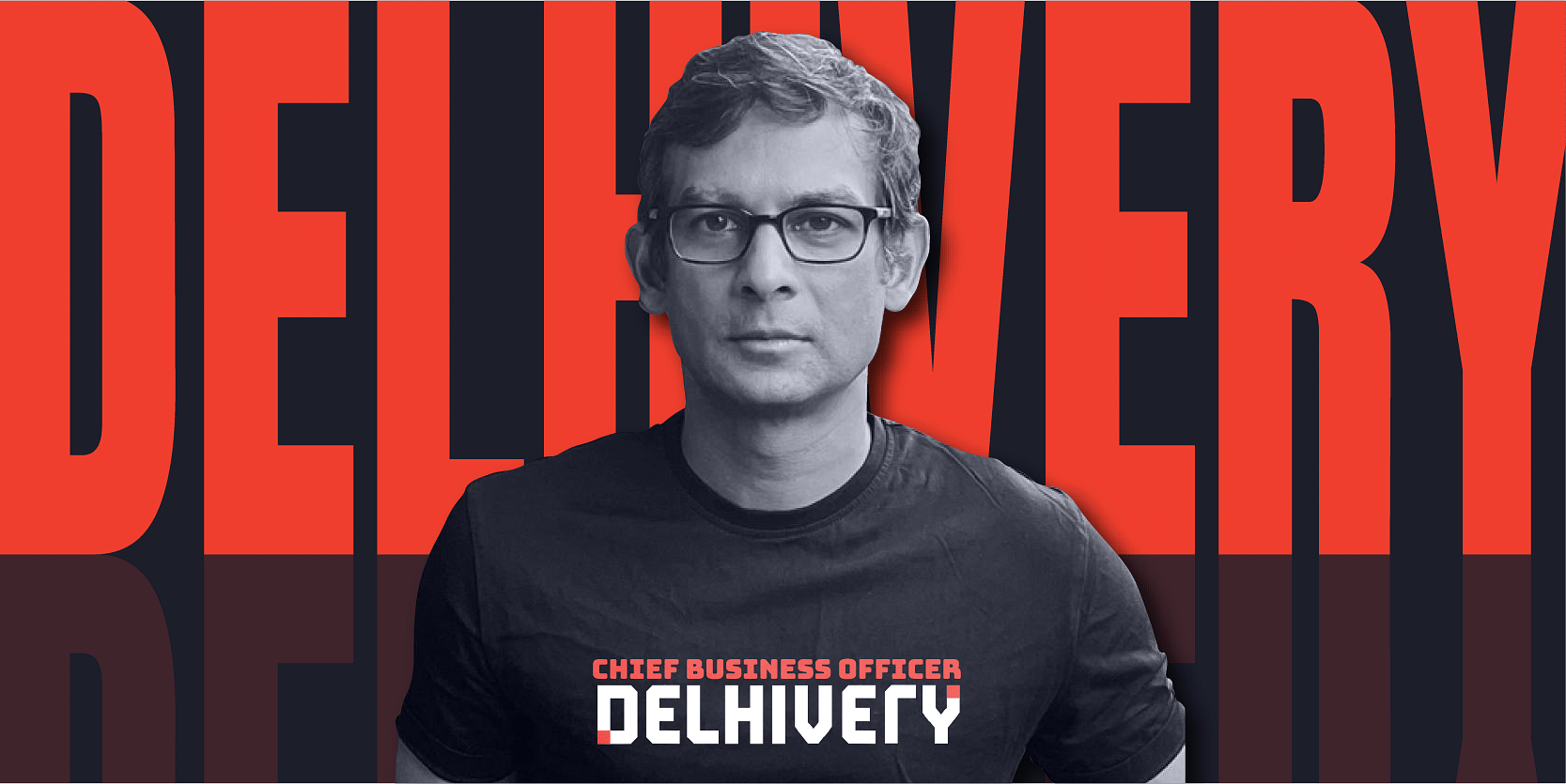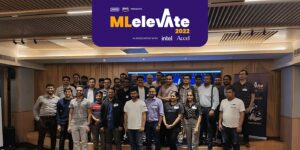In an industry where passion and purpose are high-resonance tenets, alongside hustle, of course, Sandeep Barasia’s superpower might well be his ability to be dispassionate.
That’s a trait stitched into the ‘professional’ hat he wears at , enabling him to make decisions and execute fast as the logistics company hurtles towards its next big milestones following its recent IPO.
Sandeep, a management graduate from London Business School, was a consultant with Bain & Co. for about a decade-and-half before he joined Delhivery in 2015.
The company, founded in 2011, has since evolved to offer a suite of logistics services across more than 18,000 locations in India. It raised $1.4 billion in funding from marquee investors including SoftBank, Tiger Global, Nexus Venture Partners, and Times Internet until its public listing in May.
The IPO, Sandeep says, has allowed Delhivery to bring a sense of belief to the people who built the company. “The promises made to them are now liquid.”
As the logistics startup continues to explore new markets and opportunities, it recently launched a same-day delivery service in 15 cities, mainly to cater to online-first, or direct-to-consumer, brands. Delhivery is also building a war-chest for acquisitions.
Sandeep has a front-row view to this rapid and continuing growth as the Managing Director and Chief Business Officer at Delhivery. He says the founders, including CEO Sahil Barua, have allowed him the freedom to express himself as well as co-run the business.
“It is not an easy thing to be an entrepreneur,” he says in an interview with YourStory. “You have to tip your hat to founders in their 20s and 30s who actually go out and take a large risk of trying to build a company. It’s not an easy thing to do. That’s brave. Some of them will be successful, some of them will not be.”
Sandeep, speaking from the Delhivery headquarters in Gurugram, draws on his vantage position as a “professional manager” working alongside the founders, as well as from the company’s playbook, to break down the fundamentals of building a successful startup.
“Nothing changes about building a business–whether it’s in the startup world, or it’s new-age or old-age. The basics of business are the same. You buy at a lower price and sell at a higher price. You manufacture and you sell. You have to have a gross margin. You have to have a large enough customer base. Those things don’t change.”
Edited excerpts:
Lesson 1: Going public shouldn’t be the yardstick
The IPO is nothing but a capital market event. There are large companies in this country that are still private. IPOs happen, don’t happen–that should not discourage people from building businesses.
Going public is not necessarily the end-game for a company. It’s a way of generating resources, it’s a way of getting public scrutiny, it’s an acquisition currency, and it’s a way of rewarding employees.
Lesson 2: Build for the right reasons
You have to be passionate about the problem you’re trying to solve, obsessed about it. That’s very important.
There’s a difference between building a business for valuation as an end-game, and building a business because you want to solve a problem. Because you have an idea, you have a passion, and you want to build something.
You can have a Rs 100-crore business that makes steady gross margin every year, which can be very attractive, versus building a Rs 2,000-crore business that has no prospect of ever making money.
Lesson 3: Obsess over gross margin
Early on in a business, think about gross margin. There is absolutely no excuse to not think about gross margin. And I say gross margin and not EBITDA margin or profit after tax, because if you don’t have gross margin, you will never have any of those other things.
Scale will get you profitability in the end. But gross margin has to be possible even at the very early and fundamental levels of the business.
Lesson 4: Generate alpha
How are we differentiating ourselves from others? How are we generating alpha? If you’re just doing another cookie-cutter product, then it’s a question of who’s shouting the loudest. Customers are very fickle. So unless you have a defensible moat, you’re not going to get there.
Your differentiation could be at the service level, it could be how you interact with your customers, it could be in the product. It may not always be the price. Growth has to be built around a defensible moat, rather than just on a pure pricing strategy.
Lesson 5: Build for sustainable growth
Growth without profitability is not going to be sustainable. You can’t grow at all costs. And for high growth to happen, there has to be a high market opportunity. How are you going to grow if the market size is Rs 1,000 crore and you are a Rs 500-crore company? You need enough headroom to rise up. That’s very important for high growth.
Lesson 6: Seek out large addressable markets
It’s always a good idea to start businesses that have large addressable markets. If you’re trying to create a niche market, you might succeed. But it will be easier to start when a market already exists. There are lots of untapped places in a market that people can go after.
Lesson 7: Plan for down cycles
People don’t plan for down cycles. Taking cost-cutting measures just because you have a down cycle simply doesn’t make sense. Why did you not address those costs earlier? Why were they there? What was the excuse to keep those costs?
Because then you make everybody go through pain. If you are firing 200 people because you’re going through a down cycle… why did you hire those extra 200 people? If you can do without them during a down cycle, why were they there in the first place?
Lesson 8: Hire responsibly
When you hire someone, you’re making a promise to that person. A company that has to let go of 100 people may not feel the pain; actually, it is laying off its employees because it wants to reduce pain. But for each of those individuals, it’s 100 percent of their life.
It’s irresponsible to hire irresponsibly because you’re playing with other people’s lives. Good entrepreneurs actually think about that. They get pained when their people get pained.
Lesson 9: Get those professionals
I don’t think it’s ever too early to get a professional. Getting a professional does not mean the founder steps off in an early stage of the company. The founder has to bring the professional in because they feel like they can collaborate with that person to build the business.
(As a professional executive), I think I can be emotionally a little bit more dispassionate. I think that’s the difference.
Lesson 10: Find new problems
Sahil (Barua, Co-founder and CEO of Delhivery) started really young and has been running the business for 11 years. I don’t think his passion today is any less than it was when he was 27. He hasn’t run out of energy. He hasn’t gotten bored. Because there’s a macro problem, and he’s finding new problems to deal with it every single day.
The founders don’t have a desire to retire from this business. They’re still running this business. And the core management team, whether it’s Ajith (Pai), our COO; Amit (Agarwal), our CFO; or me; we’ve been around for a long time in this business, (and) none of us is trying to run away and do something else. Because we still want to continue building.
When we look at this business and say, ‘Oh, we did Rs 7,000 crore last year, but this is going to be a Rs 30,000-crore business or a Rs 50,000-crore business,’ then there’s plenty for us to do. So then, it is no longer about what happened this quarter or this year, and about what happens this decade. That’s the conversation we are starting to have.










